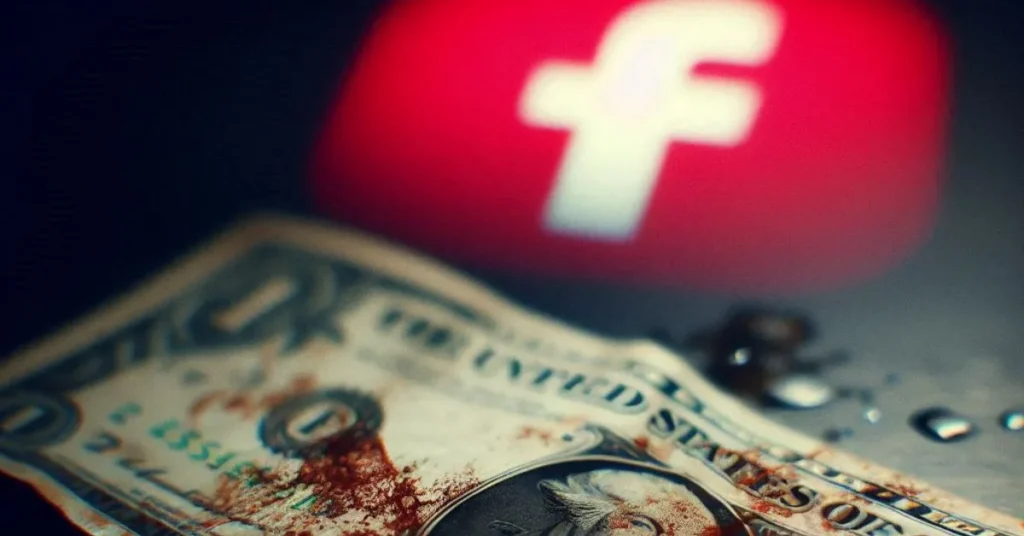The Cracks in the Facade
Facebook Downfall is not just a phrase—it’s a reality we need to acknowledge. Once a groundbreaking force in social media, Facebook was a place to reconnect with old friends, share life updates, and build communities. But let’s be honest—those days are long gone. Today, Facebook has transformed into something far more concerning. It’s no longer just a platform for social connection; it has become a powerful machine that thrives on division, fuels real-world violence, and exploits user data for profit.
We need to ask ourselves a crucial question: Are we okay with being used as guinea pigs for Facebook’s profit-driven experiments?

Facebook Downfall: Its Role in Fueling Violence
What happens on Facebook doesn’t stay on Facebook—it spills into the real world, sometimes with deadly consequences. In India, the platform’s algorithms have repeatedly been exposed for amplifying hate speech, particularly against religious minorities. A 2021 whistleblower report revealed that Facebook executives knew their platform was being used to incite violence but chose to do nothing because divisive content drives more engagement—and engagement means more ad revenue.
The 2020 Delhi riots are a tragic example. Anti-Muslim propaganda flooded Facebook, with hateful posts and misinformation spreading unchecked. Instead of stopping the fire, Facebook’s algorithms fanned the flames, allowing extremist content to go viral. A Wall Street Journal investigation even found that company executives ignored warnings that Hindu nationalist groups were using the platform to incite violence because removing them would hurt Facebook’s business interests in India.
Let that sink in: Facebook chose profits over preventing bloodshed. This is the true face of Facebook Downfall.
The Illusion of Community Standards
Facebook Downfall is also evident in its so-called “community standards,” which are little more than PR fluff. Users report hate speech, violent threats, and disturbing content, only to receive automated responses claiming no violations were found. Meanwhile, misinformation and dangerous content thrive, racking up millions of views.
Why? Because Facebook’s content moderation system is a joke. The company relies on artificial intelligence to police content, but AI repeatedly fails to detect harmful posts, especially in languages other than English. And when it comes to human moderators, Facebook has outsourced this responsibility to low-paid workers who are overburdened and given little power to make real changes.
Misinformation is another monster Facebook refuses to tame. False news spreads six times faster on Facebook than the truth. The company claims to fight misinformation, but in reality, it benefits from it. The more controversial a post, the more engagement it gets, and the more money Facebook makes from ads.
Facebook Downfall: Privacy Violations and Data Exploitation
Think your personal data is safe on Facebook? Think again. If you use the platform, your data isn’t just being collected—it’s being sold. Remember the Cambridge Analytica scandal? That was just the tip of the iceberg. Facebook tracks everything you do, from the websites you visit to the conversations you have in private messages. And they don’t stop at Facebook itself—Meta, its parent company, continues to track users even when they leave the platform.
In 2023, Meta was slapped with a record-breaking $1.3 billion fine for violating European data privacy laws. This wasn’t a one-time mistake; it’s a pattern of behavior that proves Facebook doesn’t care about your privacy. If they can profit from your personal information, they will.
And let’s talk about targeted ads. Have you ever had a private conversation about a product, only to see ads for it pop up on Facebook moments later? That’s not a coincidence—that’s surveillance. Facebook Downfall is rooted in its business model, which relies on knowing everything about you, including your habits, fears, and desires, and selling that information to the highest bidder.
The Real Cost of Staying on Facebook
Facebook isn’t just a social media platform—it’s a business empire built on division, manipulation, and exploitation. Every time we log in, we feed the machine. Every post we like, every video we watch, and every comment we leave fuels an algorithm designed to keep us addicted, engaged, and vulnerable to manipulation.
So, the question isn’t whether Facebook will change—it won’t. The real question is, will we? Will we continue to support a company that prioritizes profits over ethics? Will we accept being used as data points in a corporate experiment? Or is it finally time to step away and take control of our digital lives?
The choice is ours. But one thing is clear: Facebook Downfall is happening right before our eyes. It’s time to rethink our relationship with it before the cost becomes too great.

